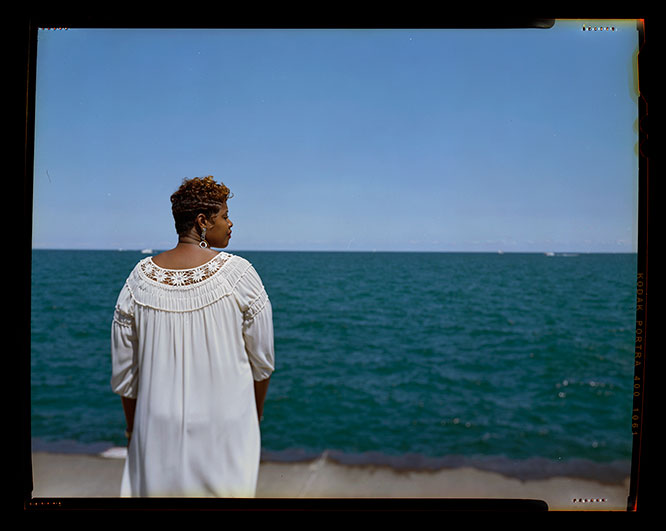A Mother Alone
A Mother Alone
Jon Henry’s photography offers the hope that remembrance can spark political change.

Jon Henry began traveling the United States with his large-format camera in 2014. At each stop, he assembled two scenes: one of a Black mother and son, and another of that same mother, alone. These mothers had not lost their sons to police violence, but they were invited to act out publicly what is often a private anguish and anxiety for too many Black families in America. Their performances of grief echo the bravery of Mamie Till and a long chain of mothers across time and space who have put their pain on display.
When the mothers hold their sons—draped over their knees, echoing how Michelangelo captured Mary’s embrace of Jesus’s crucified body in his Pietà, or splayed at their feet—they stare through the camera lens at the viewer. When the mothers are alone, they examine their surroundings, shifting their gaze to a geography of omnipresent violence.
In this 2016 image made in Groveland Park, Illinois, a mother wearing a white dress with a floral collar looks down the shore. Against the dark turquoise water, she mirrors Yemoja, the Yoruba goddess of water—a figure often syncretized with Mary—who welcomed all the children who plummeted into her loving arms during the Middle Passage. To mark the New Year in Brazil, people fill the oceans with offerings of white flowers for Yemoja, just like the ones that dance across this mother’s back. Just as all life comes from Yemoja’s nourishing waters, the photograph suggests that amid loss, there is hope—hope that remembrance can spark political change.
Anakwa Dwamena is a contributing editor for Africa Is a Country.






